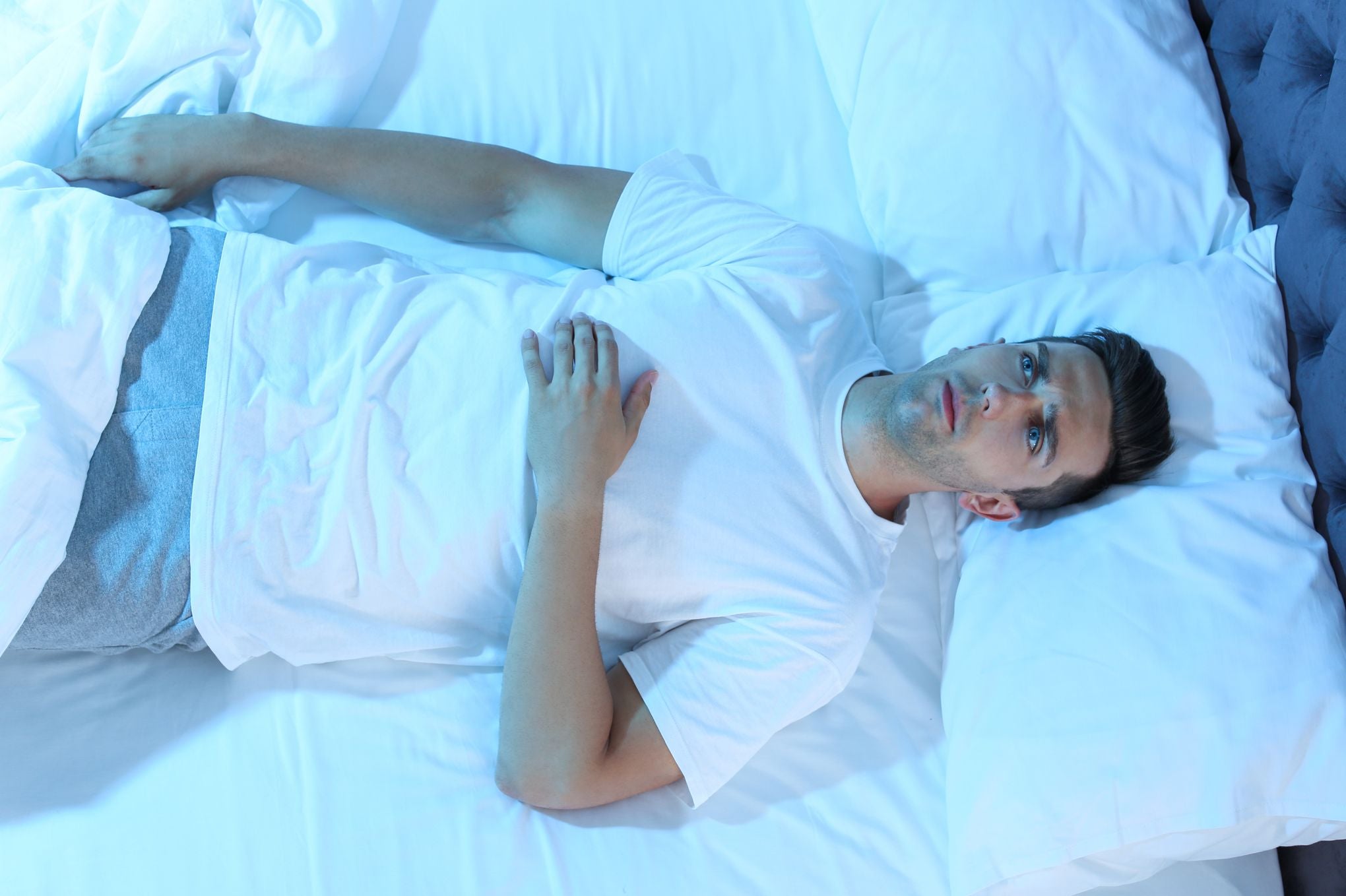Imagine this: you’re lying in bed, either about to fall asleep or in the process of waking up. You try to move, but you really can’t. Trying to scream? Also impossible. A feeling of panic starts to rise in you and your heart rate accelerates, and for a few seconds, you think you’ve become quadriplegic without warning. After a few seconds or a few minutes, everything returns to normal and you're free to move, but you're now completely anxious about what just happened. What was that? This phenomenon has a name: sleep paralysis. And don't worry, as impressive as it is, it's not dangerous. Polysleep tells you more about it.
Sleep Paralysis
Medically speaking, sleep paralysis is a parasomnia that occurs during the wake-sleep or sleep-wake transition at the time of falling asleep (called hypnagogic paralysis), or shortly before waking (hypnopompic paralysis); the resulting muscle atony (i.e. a drastic decrease in muscle tone) prevents you from moving. In addition to earning you a lot of Scrabble points or impressing your friends, these two conditions can also be accompanied by visual or sensory hallucinations. Not only are you unable to move, but you can see and hear unreal things... pretty creepy, right?
But don't worry, you're not alone: specialists estimate that between 25 and 60 percent of the population has experienced an episode of sleep paralysis, at varying degrees of intensity. And that a small percentage (around 6%) experience moderate to severe episodes on a regular basis.
What causes sleep paralysis?
Often appearing during adolescence or early adulthood, sleep paralysis occurs most of the time for no reason. However, there are some things that seem to "promote" this disorder:
- Sleep issues (lack of or non-restful sleep)
- Overworking, anxiety
- Neurological disorders such as bipolar
- Taking certain medications
- Atypical schedules
- Sleeping on your back
- Etc.

I suffer from sleep paralysis (well, I think). What to do?
If you think you suffer from sleep paralysis, first check that you don't have narcolepsy; people with this disorder suddenly fall asleep anywhere (work, school, even on the road), and may also suffer a loss of muscle tone called cataplexy (more Scrabble points).
In itself, sleep paralysis does not require medication unless you have a severe form of the disorder, or if your disorder is genetic in origin. However, you can learn how to manage this problem, although you’ll need to put a lot of effort into it.
Firstly, some studies have shown that focusing on your breathing until it resumes a normal rhythm can help you get out of this state. What is more, you might be able to move your fingers, your toes, or even your facial muscles to help the paralysis disappear, but the first few times will be difficult and you will probably feel like a Jedi apprentice trying to move objects with just the power of your mind!
External contact can help you out of your paralysis state; let your sleeping partner know that you suffer from sleep paralysis. That way, he or she can intervene by talking to you or touching you lightly.
Finally, if you think that your sleep paralysis could be related to your lack of sleep or to the poor quality of your sleep, check if your bedroom temperature is adequate or if your mattress is well suited to you and comfortable; otherwise, a foam mattress, which conforms to the shape of your body, could allow you to enjoy a good night's sleep!
Discover Polysleep's foam mattresses
When in doubt, don't hesitate to consult a doctor or a sleep specialist, who’ll be in the best position to answer your questions and who can help you manage this disorder either by giving you various tools to help you do so, or by helping you make radical changes to your lifestyle. And who knows, waking up "paralyzed" could soon be just a distant memory!
To conclude, sleep paralysis:
- Is not dangerous,
- Can happen without warning,
- Can be related to sleep deprivation.
If you liked our blog article, please don't forget to Share it with your friends by clicking the button below!










